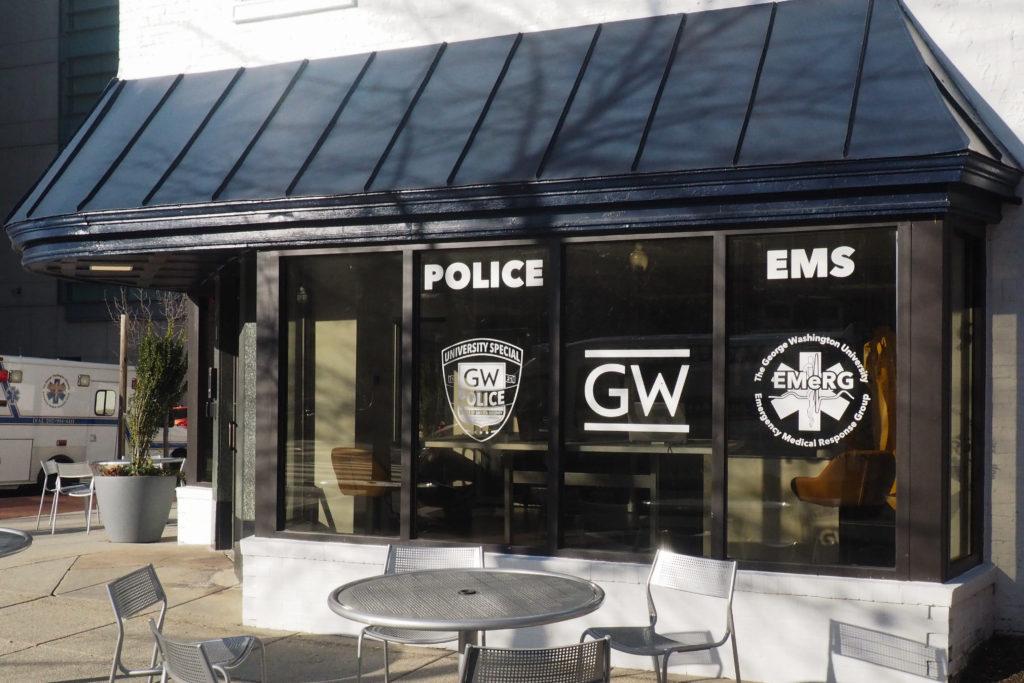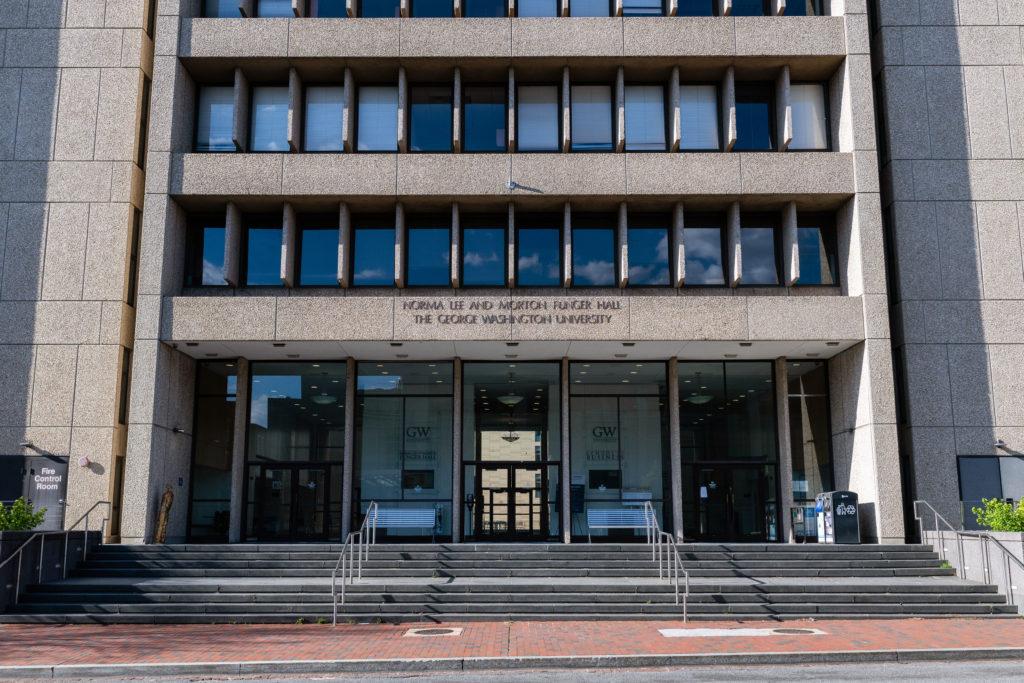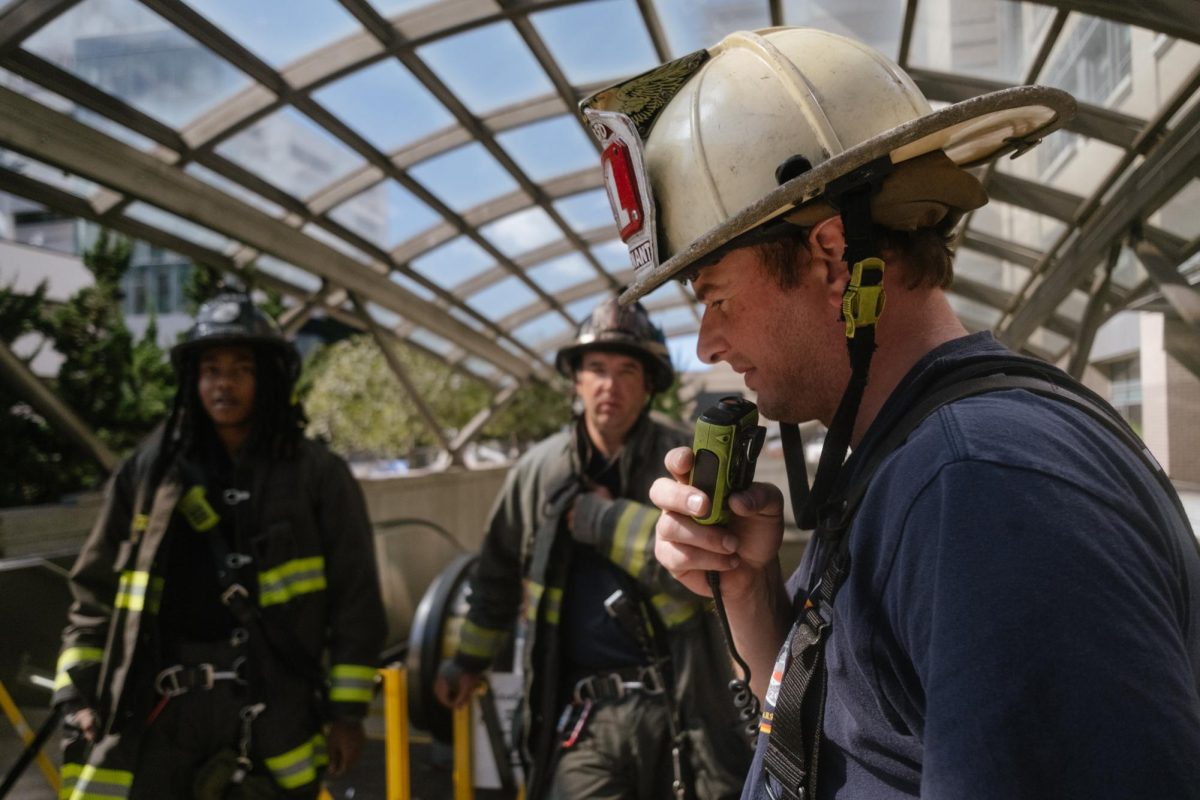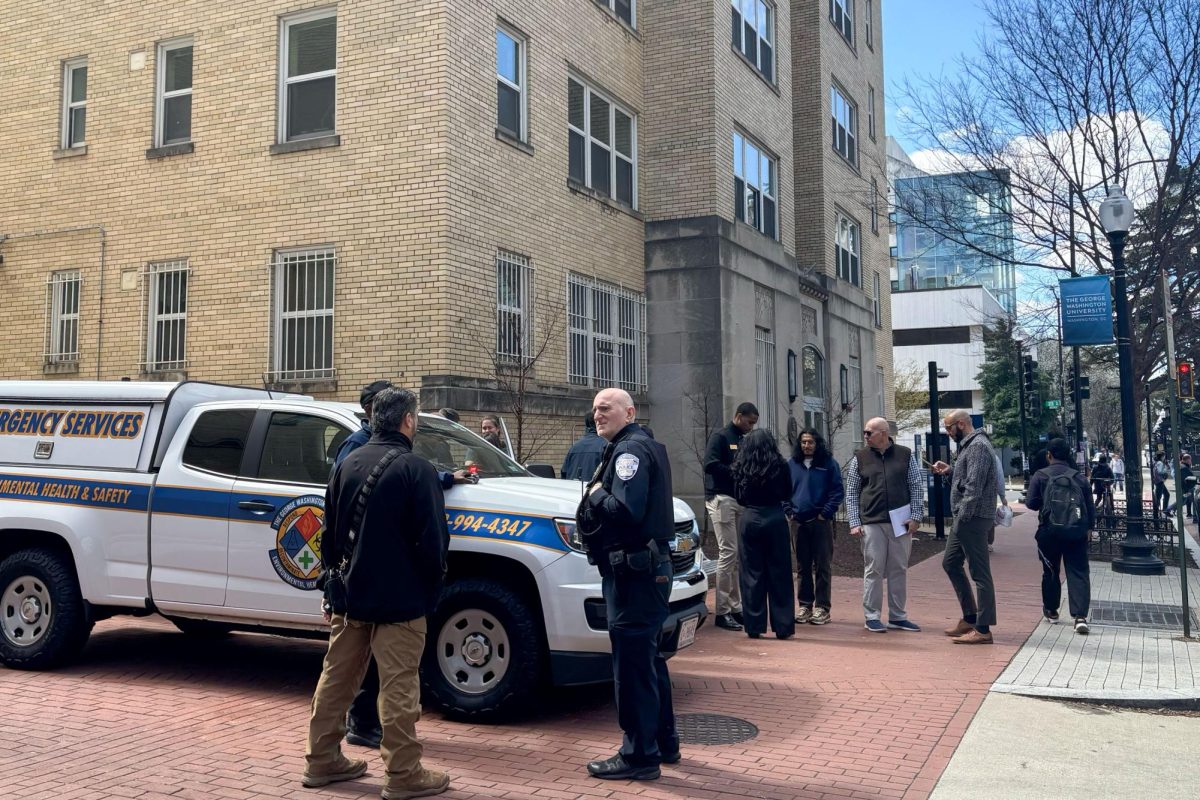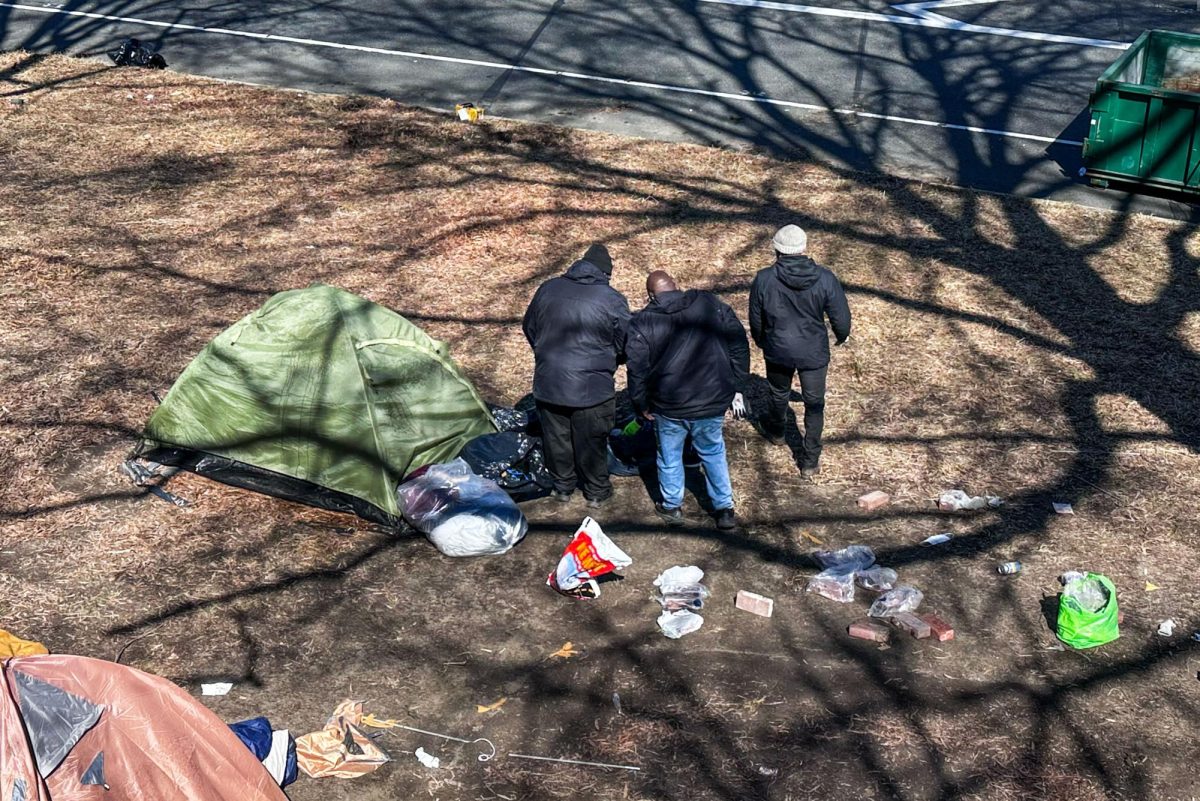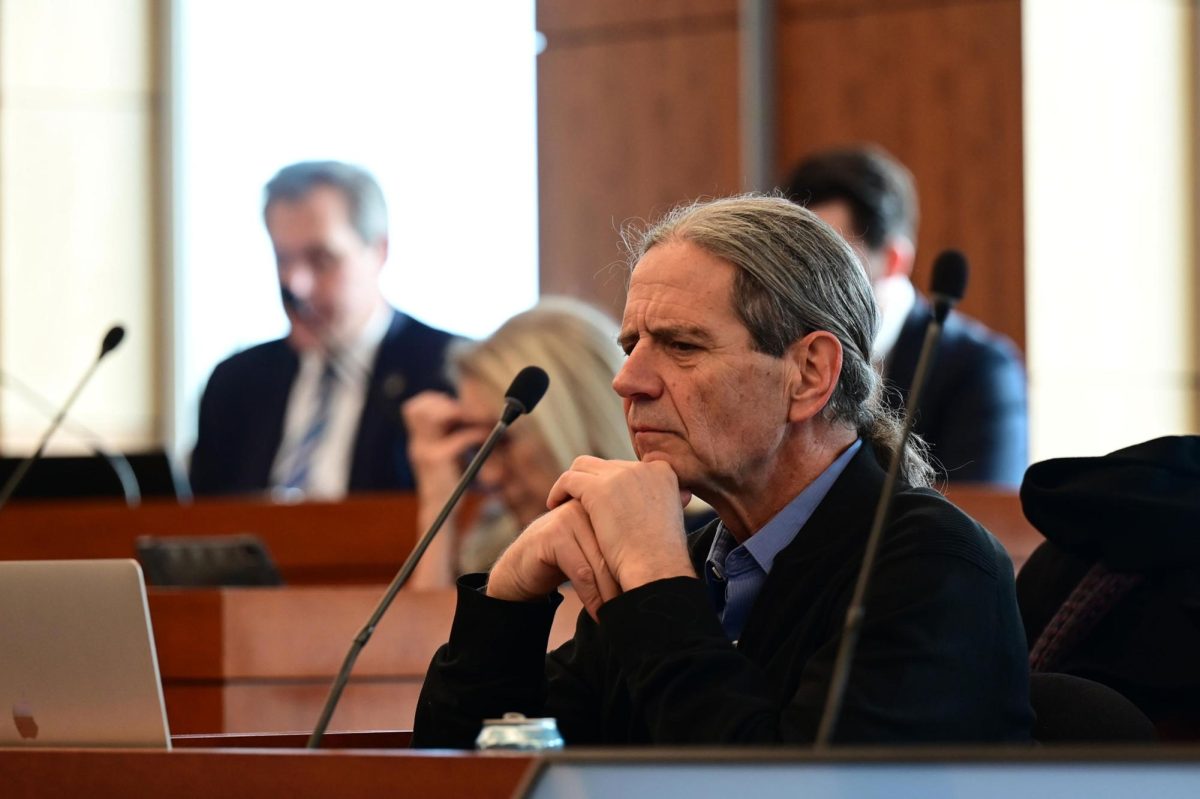Updated: April 20, 2023, at 12:56 p.m.
The Board of Trustees has directed the University to arm GW Police Department officers, according to an email interim University President Mark Wrighton sent to the GW community Thursday.
Wrighton said in an interview with The Hatchet that GWPD will arm roughly 20 of about 50 total GWPD officers with 9 mm handguns in response to heightened gun violence in the United States, including recent school shootings at colleges like Michigan State University and the University of Virginia. Wrighton’s email states after more than a year of “careful consideration,” officials will arm “specially trained” GWPD officers who can immediately respond to developing emergencies, which they currently defer to armed officers in other departments.
Wrighton said the University’s “densely populated setting” creates a need to arm GWPD officers, who are familiar with GW’s campus and community. He said arming officers would allow the department to respond to emergencies more quickly if agencies receive increased calls for service.
Wrighton said police need to be prepared to respond to “huge stressors” in society and at GW today involving people struggling with mental illness.
“You see in the news, sadly, virtually every day, violence that stems from the use of guns,” Wrighton said in the interview. “We know that this is a huge problem. I’ve seen educational institutions, including higher education institutions, very seriously affected.”
The shootings at UVA last November and MSU in February each killed three students and wounded two and five, respectively, sparking new calls to address campus violence across the country and to reanalyze gun control laws.
GWPD Chief James Tate said the armed officers will have a rank of sergeant or higher, and many in the group are already certified to carry firearms from when they worked in other police departments and agencies before coming to GWPD. Tate said Metropolitan Police Department officers will not formally conduct the training on de-escalation, use of force and firearm usage, but will assist the department by providing its policies on firearm use.
Tate said officers who will carry firearms have “distinguished and honorable” past careers as police officers and have not ever been the subject of “issues or concerns.” He said many of the officers who are set to carry firearms have previously done so for “many years with no issues.”
“Training standards have to be high,” Tate said.
Campus police officers are exempt from the D.C. law prohibiting unlicensed concealed carry. Special police officers and security guards, but not campus police officers, must “complete minimum levels of pre-assignment, on-the-job and in-service training,” according to D.C. law.
GWPD unveiled body-worn cameras and officer training reforms in August 2020, which included defense tactics, bias training and de-escalation tactics among 18 topic areas, after students voiced concern about the divide between GWPD officers and students.
Tate said he’s met with student organizations including the Student Association, Black Student Union and students involved with Fraternity and Sorority Life to discuss the University’s plans to arm GWPD officers. He said students encouraged him to remember the need for de-escalation during incidents involving weapons where a subject might be experiencing a mental health emergency and remain “accessible and approachable” to students as GWPD implements the plan to arm officers.
He said GWPD officers now refer mental health-related dispatches to EMeRG and wait on standby for EMeRG responders to notify them on whether officers need to enter a scene instead of intervening directly, which can be “overwhelming” for the subject.
“This is a path that we have to walk together and that’s what I intend to do,” Tate said in an interview.
Tate said he is aware that incidents of police misconduct that disproportionately affect people of color cause “concern, anxiety and pain” and added it is difficult to win people’s trust in “this environment” and his line of work. He said the department implemented body-worn cameras in August 2020, along with vehicle dashcams and recorded radio conversations to help strengthen the community’s trust in officers and counter police malfeasance.
More than 95 percent of civilian deaths caused by police involve a firearm. Police were nearly three times more likely to kill Black people than white people between 2013 and 2019, according to a 2022 report by Everytown Research and Policy, a gun control advocacy nonprofit.
“It hurts, it absolutely hurts people of color to see that happen over and over, and as a man of color myself, I understand,” Tate said. “The only way I know to assuage fears and concern is to make sure that I set the tone at the very top of GWPD in terms of what’s acceptable and what’s not acceptable. And then we hold the line.”
Wrighton said in an interview when he started his job as University president in January 2022, trustees were already discussing issues relating to campus safety and security like arming officers, including the concern over firearm-related police brutality. He said in the email the University is working with 21CP Solutions, Inc. – a law enforcement consulting group consisting of police chiefs, lawyers and academics – “to help guide its planning” to arm officers.
Wrighton said the University will appoint a review board that will oversee armed officers. He added students will be able to provide feedback on the proposed policy on GWPD’s website, and he will post a draft of the University’s proposed use-of-force policies online for community members to examine.
“I have complete confidence in the chief and our police department, but I think having a review board for a major incident will be very important,” Wrighton said.
Ten of the University’s 12 peer schools equip their campus police forces with guns as of Thursday, including Boston, Northeastern, Syracuse, Tufts, Tulane and Wake Forest universities, and the Universities of Miami, Pittsburgh, Rochester and Southern California. Campus police officers at New York University do not carry firearms.
Three universities in the District – Howard and Catholic universities and the University of the District of Columbia – also arm their campus police officers, while those at American, Georgetown and Gallaudet universities remain unarmed.
Wrighton said he couldn’t recall a single incident during his time at GW where it would be necessary for GWPD officers to use a firearm. Tate said GWPD officers equipped with firearms could have more effectively intervened in situations like recent Canada Goose jacket robberies near and on campus, some of which involved guns.
“An unarmed officer is really limited,” Tate said. “They really can’t respond in that state and be effective.”
GWPD registered a three-year high in calls for service in 2022, which Tate attributed to fewer COVID-19-related restrictions on campus and students who felt more comfortable reporting crimes to officers last month. The department also reported a three-year low in arrests in 2022, a decline which Tate said did not have an “immediately clear” explanation beyond fewer offenses warranting an arrest.
Overall crime in D.C. has increased by 23 percent so far this year compared to the same time in 2022 as of Wednesday, according to MPD data. MPD records show a 3 percent uptick in violent crime and a 27 percent jump in property crimes so far this year when compared to the same period last year, with spikes in carjacking and arson.
Homicides in the District increased starting in 2020, from 166 homicides in 2019 to 198 homicides in 2020. MPD reported 203 homicides in 2023.
Reports of assaults with a dangerous weapon dropped by 2 percent this year when compared to the same period last year, MPD records show. Ward 2, which includes Foggy Bottom, reported the lowest number of crime reports in 2022 out of any ward in the District.
Tate, who arrived at GW from Rice University in early 2020, has prioritized retraining officers, increasing transparency and reaching out to the community over his three-year tenure.
Officers held Raise High with GWPD events during the fall semester, offering students free food and sharing information about the department. Throughout the year, Tate has held Coffee with the Chief on the third Thursday of each month from 1 to 3 p.m. in Phillips Hall for students to discuss public safety concerns.
“We’re a strong community,” Wrighton said. “I hope that it can become even stronger, more rewarding for our students and our faculty and staff.”
Henry Huvos, Nick Pasion and Zach Blackburn contributed reporting.


